Rapporter | Briefings
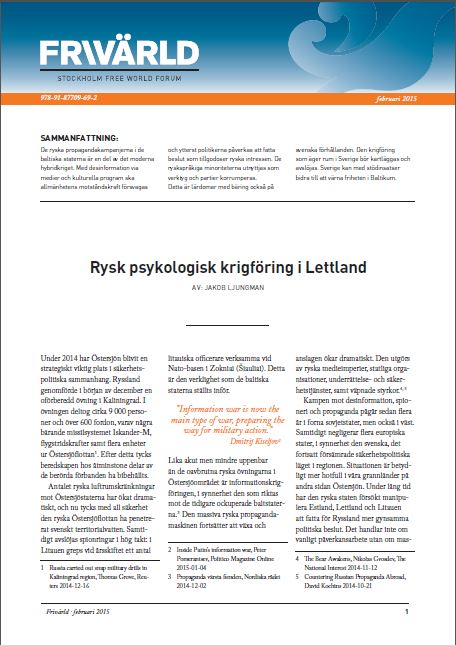
Russian Psychological Warfare in Latvia (in Swedish)
Summary: Russia has long attempted a campaign of mainly non-military means in Latvia consisting of numerous strategies taking place both in the country and its surrounding areas. These campaigns must be viewed in light of the severe military escalation in the Baltic Sea and in Eastern Europe. An underlying problem is the rift between ethnic Latvians […]
LADDA NER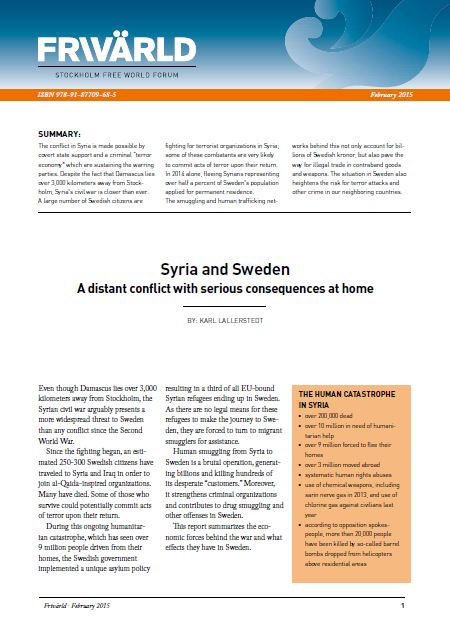
Syria and Sweden
The conflict in Syria is made possible by covert state support and a criminal “terror economy” which are sustaining the warring parties. Despite the fact that Damascus lies over 3,000 kilometers away from Stockholm, Syria’s civil war is closer than ever. A large number of Swedish citizens are fighting for terrorist organizations in Syria; some of these combatants are very likely to commit acts […]
LADDA NER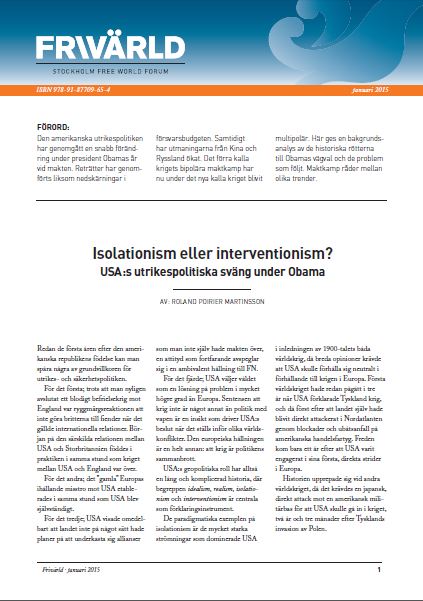
Isolationism or Interventionism (in Swedish)
America’s foreign policy has undergone swift changes during President Obama’s years in power. Not only has there been a retreat in military involvement, there have also been decreases in the country’s defense budget. Meanwhile, the challenges from China and Russia have increased. The bipolar battle for power during the Cold War has now become multipolar during […]
LADDA NER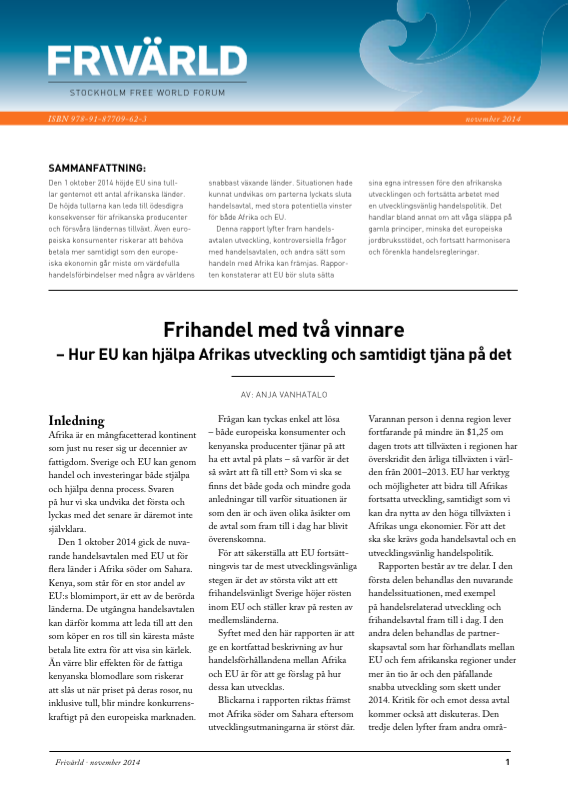
Free Trade with Two Winners (in Swedish)
In October 2014, the European Union increased its tariffs against a number of countries in Africa. The increased tariffs can lead to extreme consequences for producers in Africa and hamper the countries’ growth. Even European consumers are at risk of having to pay more while the European economy is deprived of valuable trade relations with some of the […]
LADDA NER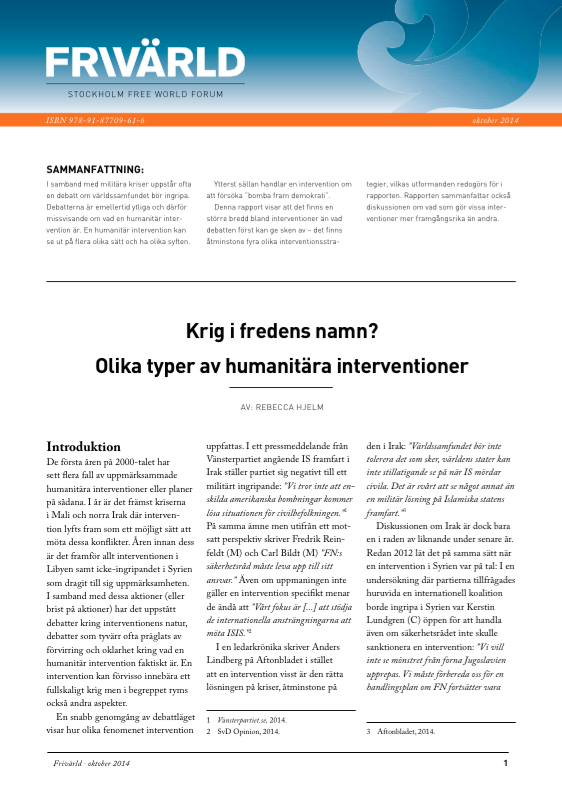
War in the Name of Peace? (in Swedish)
The report ”War in the name of peace? Humanitarian interventions” by Rebecca Hjelm summarizes different types of interventions and intervention strategies. The report contributes to the discussion on what makes some interventions more successful than others. – Interventions are not just about ”bombing”. Although warfare is the intervention strategy that creates the most headlines, interventions can also be […]
LADDA NER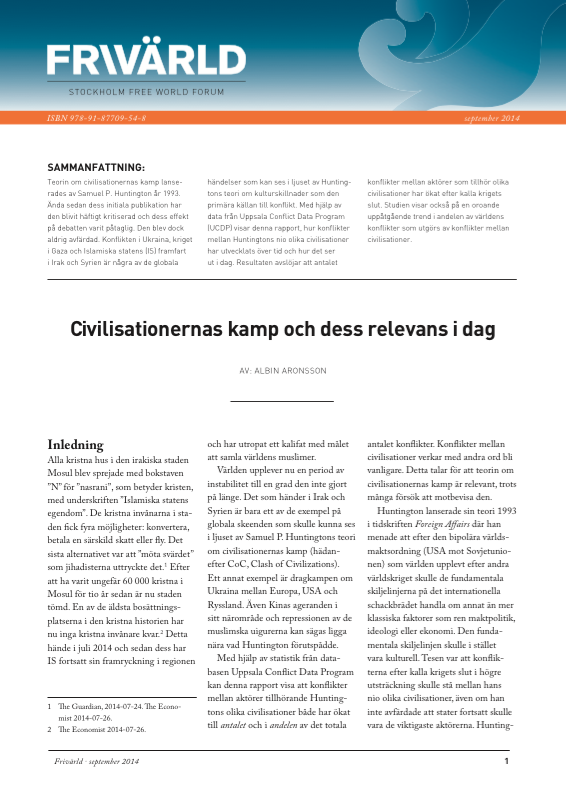
The Clash of Civilizations and its Relevance Today (in Swedish)
The theory of a “clash of civilizations” launched by Samuel P. Hungtington in 1993 has been severely criticized. However, it has never been dismissed. In the report ”The Clash of Civilizations and its Relevance Today”, Albin Aronsson shows that the number of conflicts between civilizations has increased since the Cold War, from 20 percent in 1991 to 43 percent in 2012. These […]
LADDA NER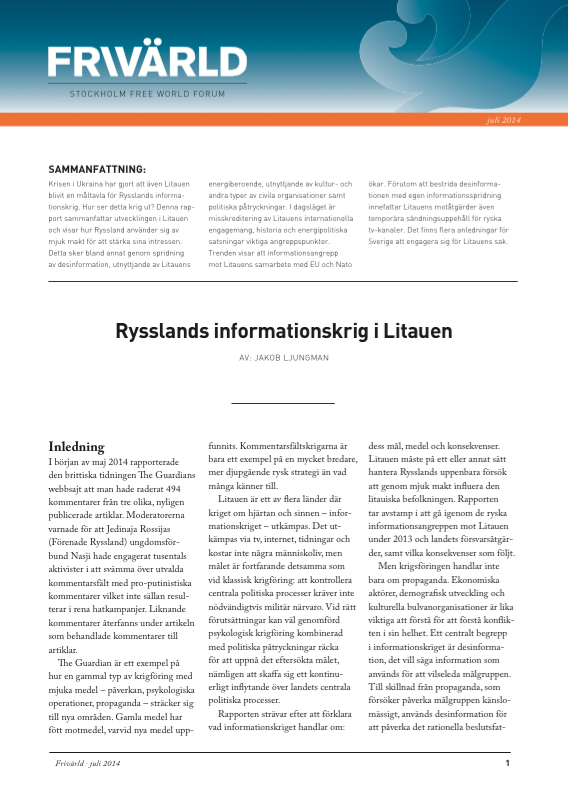
The Russian Information War in Lithuania (in Swedish, article in English)
The crisis in Ukraine has resulted in Lithuania also becoming a target for Russia’s information warfare. What does this propaganda war look like? The report “The Russian Information War in Lithuania” summarizes the developments in Lithuania and illustrates how Russia uses soft power to pursue its interests. In the current situation, important points of attack are focused on discrediting […]
LADDA NER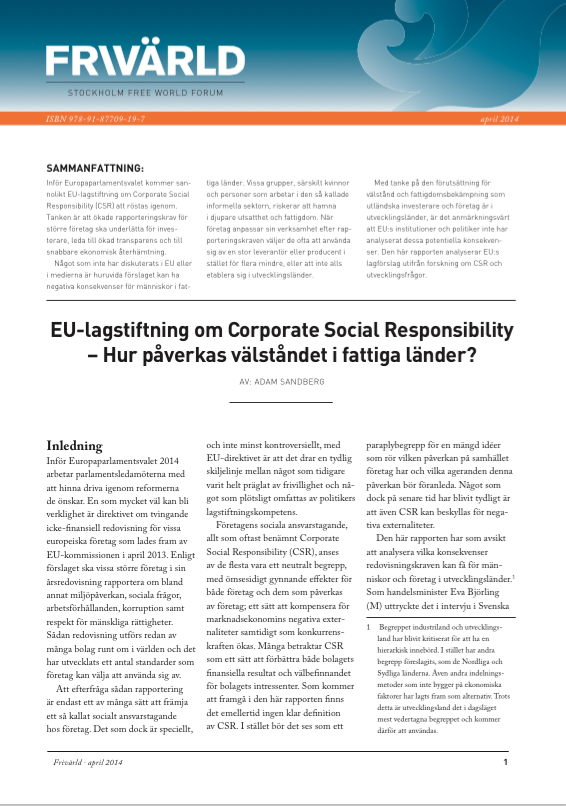
EU Legislation on Corporate Social Responsibility (in Swedish)
The European Union has adopted a proposal concerning increased reporting requirements of bigger corporations’ work with Corporate Social Responsibility, CSR. This proposal for a new EU directive has been prepared. The idea is that corporations are responsible for reporting their CSR-work, which is said to simplify for investors and create growth. However, the consequences in poor […]
LADDA NER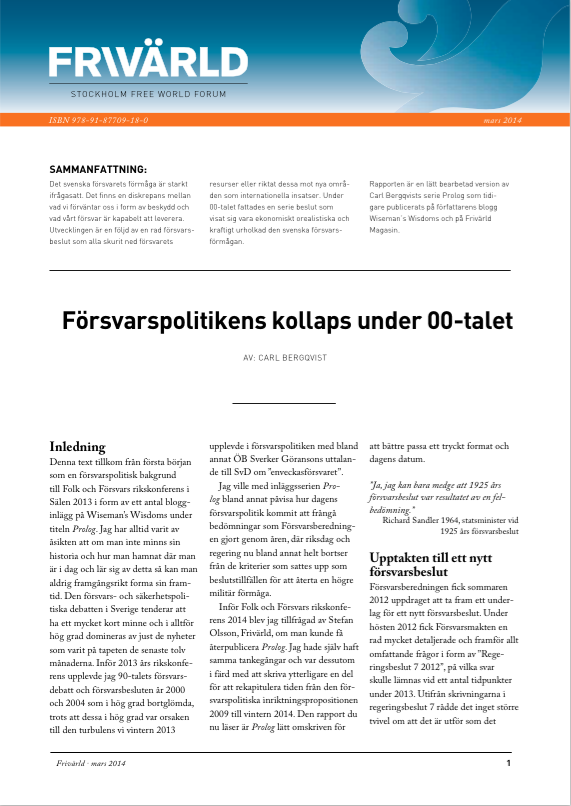
The Collapse of the Defense Policy Since the Turn of the Century (in Swedish)
Swedish defense has been questioned during the past several years. It is clear that defense capabilities have worsened, resulting in the Swedish defense forces not being able to complete its main tasks. In the report “Collapse of the Defense Policy Since the Turn of the Century”, Carl Bergqvist analyzes the problems of the Swedish defense. The report […]
LADDA NER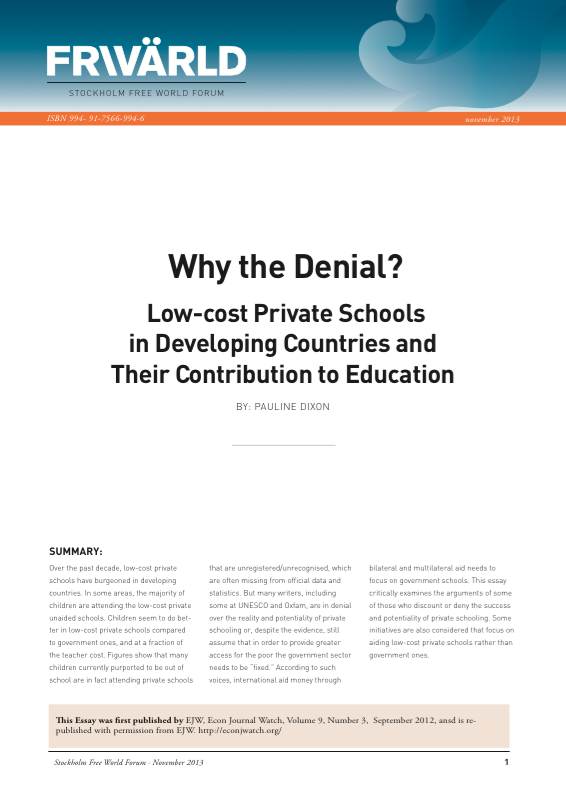
Why the Denial? Low-Cost Private Schools in Developing Countries and Their Contributions to Education
In many developing countries, the majority of the poorest children go to low-cost private schools, which do not receive any public funding or aid money. The students in these schools often perform better than the children in the public schools, for a fraction of the fees. In her report ”Why the Denial? Low-Cost Private Schools in […]
LADDA NER